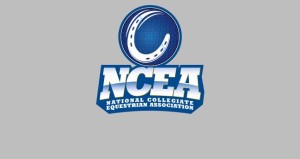NCAA Affirms Support For Collegiate Equestrian
The Committee on Women’s Athletics (CWA) confirmed its support for Equestrian to remain on the NCAA Emerging Sports list during the April 2016 meeting in Indianapolis. The CWA voted on and approved a statement recommending that Equestrian remain on the Emerging Sports list due to new organizational efforts, membership feedback, and potential growth.
Over the past 12 months, support for the sport of Equestrian has surged with renewed enthusiasm from both NCAA membership as well as stakeholders in the equine industry. The National Collegiate Equestrian Association (NCEA) in collaboration with the NCAA oversees the sport of Equestrian while under the Emerging Sports umbrella. With renewed focus on the expansion of the sport, the NCEA has provided the foundation for a stronger support base for the sport to remain viable within the collegiate setting.
Dr. Leah Fiorentino, Executive Director of the NCEA responded to the CWA message, “Our initial efforts to reorganize our resources and implement a sound strategic plan for growth and expansion has been recognized by the NCAA. We are encouraged by the support we’ve received from the NCAA leadership as well as our colleagues involved with the other Olympic Sports. With the continued support of the NCAA we look forward to ensuring that Equestrian will be part of the effort to maintain meaningful educational opportunities for women through athletics.”
In the fall of 2014, the CWA recommended that Equestrian be dropped from the Emerging Sports list due to the limited growth in the number of teams sponsoring Equestrian. Representatives from Division I and Division II rejected the CWA recommendation in support of maintaining participation opportunities for women. Multiple updates on the progress of the sport from the NCEA leadership offered a new perspective on Equestrian and convinced the CWA to reconsider its earlier action.
“Receiving the support of the CWA based on this latest action is crucial to the continued growth and development of the sport on the collegiate level”, commented Nancy Post, Senior Woman Administrator at Baylor University, “Our work to expand the sport has been hampered by the uncertainty of future support from the NCAA. This public statement from the NCAA clears the way for several schools to move forward with the addition of Equestrian as a varsity sport on their campus.”
Part of the NCEA’s new structure includes a National Advisory Board (NAB) comprised of corporate leaders, philanthropists, and equine industry experts. The goal of the NAB is to develop the financial support to make Equestrian the first financially-independent non-revenue generating collegiate sport. NAB efforts have shown early success in the form of grants to help sustain current NCEA teams, as well as providing financial strategies for the development of new Equestrian teams across the nation.
“Working with the NAB has sharpened our focus and allowed us to adopt a more progressive and strategic approach to expanding the sport across the country. The NAB is directly involved in the campus meetings that we arrange with new schools that have shown interest in sponsoring Equestrian,” commented Kevin Hurley, Associate Athletic Director at Texas A&M University.
Gathering support from stakeholders from the NCAA and the USOC has positioned Equestrian for a successful future in the world of collegiate sports.











